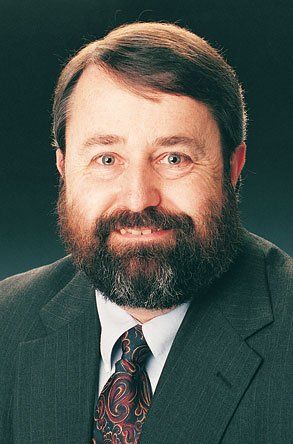- Acne
- Actinic Keratosis
- Aesthetics
- Alopecia
- Atopic Dermatitis
- Buy-and-Bill
- COVID-19
- Case-Based Roundtable
- Chronic Hand Eczema
- Chronic Spontaneous Urticaria
- Drug Watch
- Eczema
- General Dermatology
- Hidradenitis Suppurativa
- Melasma
- NP and PA
- Pediatric Dermatology
- Pigmentary Disorders
- Practice Management
- Precision Medicine and Biologics
- Prurigo Nodularis
- Psoriasis
- Psoriatic Arthritis
- Rare Disease
- Rosacea
- Skin Cancer
- Vitiligo
- Wound Care
Article
Why you should become a global mentor
Here’s an opportunity: Go to a foreign country and teach dermatologists about modern surgical techniques. Here’s the catch: It’s on your dime. Learn why derms should become global mentors and it's benefits.
Here’s an opportunity: Go to a foreign country and teach dermatologists about modern surgical techniques. Here’s the catch: It’s on your dime. Here’s why you should consider it: Helping others is a reward in itself.
READ: Three reasons why your practice should support a cause
“You’ve got to do it on your own time, and nobody’s going to pay you,” says Glenn Goldman, M.D., professor and medical director of Dermatology at the University of Vermont School of Medicine. “You do work, and you’re tired while you’re on vacation, but it’s a very unique experience. You get to meet people on their own home soil whom you otherwise wouldn’t have the opportunity to interact with. And the providers and patients are extremely grateful.”
There’s more, says Dr. Goldman, who made a presentation about international mentorship at the 2015 annual meeting of the American Society for Dermatologic Surgery. “It’s medicine the way it used to be,” he says. “In the U.S., there are a lot of regulations and rules. In other countries, you just go and operate.”
High demand
Around the world, American dermatologic surgeons are in high demand as mentors, says Dr. Goldman, who’s traveled to mentor in Romania and South Africa and will be heading to Poland. Mentorships in other nations typically last one to four weeks and offer American surgeons an opportunity to train dermatologists in procedures that are routine in the U.S.
“One of my goals is to have people in the states realize that they’re in a privileged position and have the ability to act as mentors internationally,” Dr. Goldman says.
RECOMMENDED: Why you should mentor the next generation of derms
While skin cancer treatment is excellent in the U.S. and Australia, it lags in much of the rest of the world, Dr. Goldman says. France, the Netherlands, Germany and Spain each have fewer than 5 fellowship-trained skin cancer surgeons, he says, even though skin cancer is common everywhere where Caucasians live.
In Poland, he says, there was no Mohs surgery until recently. In contrast, the American College of Mohs Surgery boasts more than 1,200 members alone, and American Society for Mohs Surgery has more than 1,000 members.
Dr. Goldman says the focus is on bringing advanced dermatological surgery training to countries that already have medical services but lack know-how. “The goal isn’t to go to a country that has no medical services,” he says.
American mentors can provide valuable training in basic skills in the areas of biopsy, suturing and excision, Dr. Goldman says, as well as procedures to treat skin cancer. Mentors may also provide training in basic cosmetic procedures that are common here such as chemical peels and Botox.
INTERESTING: Paying it forward through mentoring
According to Dr. Goldman, mentorship has produced dramatic results in the Philippines, South Africa, Romania, Indonesia, Vietnam, India and Greece.
Dermatologic surgeons can agree to host foreign visitors at their U.S. clinics or go abroad. (According to Dr. Goldman, there’s little international mentorship of American dermatologic surgeons by foreign surgeons.)
In regard to hosting foreign surgeons, “I’ve had people come, stay with me at my house and work with us for up to 6 weeks at a time,” he says. “We’ll support people coming here to observe up to 100 surgeries.”
NEXT: How and why
How and why
Not everyone can be a mentor, however. The ASDS program requires mentors to have a minimum of seven years of practice experience, have teaching experience, speak fluent English and preferably have published research about dermatologic surgery in a professional medical journal.
ALSO READ: Should dermatologists change the way we do business?
What do American dermatologic surgeons get out of helping others? “Mentors develop teaching skills and generally become friends with those they mentor,” Dr. Goldman says. “You also get the satisfaction of leaving something behind. If you go to a foreign country and help them learn procedures and develop their programs, they’ll train other people. You may leave, but they’ll get exponential growth in ability.”

Ron Wheeland, M.D., FACPRon Wheeland, M.D., FACP, a Tucson dermatologist, mentors colleagues in the U.S. and speaks abroad. He describes the benefits of mentoring this way: “I often feel that I learn more from my mentees than they learn from me. Their inquisitive minds generate intriguing questions that I haven't thought about before.”
READ: Do you whistle while you work? You should
In addition, “there is a huge emotional reward from acting as a mentor,” says Dr. Wheeland, who is former head of dermatology at the University of Arizona College of Medicine and past president of the American Academy of Dermatology and the American Society for Laser Medicine and Surgery. “On many occasions I've had people come up to me-whom I've forgotten-and tell me how much I influenced their careers. This is truly what makes it all worthwhile.”
If you’d like to be a dermatologic surgical mentor, Dr. Goldman recommends working through the ASDS International Traveling Mentorship Program, which was established in 2010. (www.asds.net/itmp)
Newsletter
Like what you’re reading? Subscribe to Dermatology Times for weekly updates on therapies, innovations, and real-world practice tips.
















